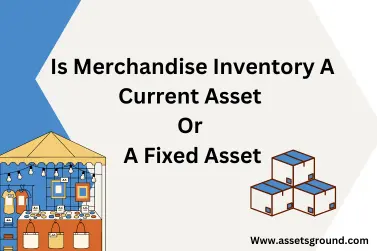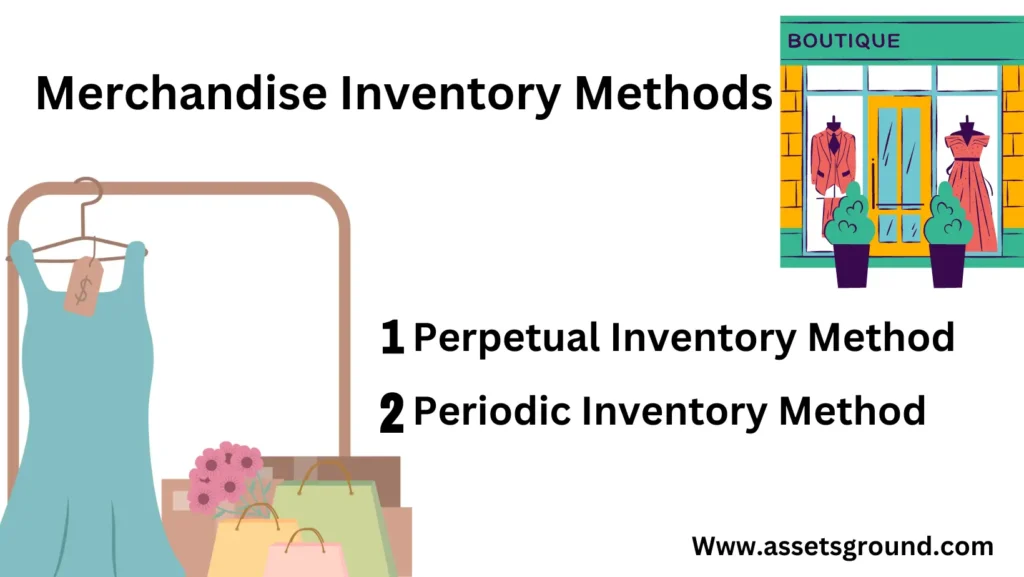Is Merchandise Inventory A Current Asset Or A Fixed Asset

What Is Merchandise Inventory In Accounting
Merchandise inventory refers to the stock of a business that is held by a business for the purpose of selling to customers. The merchandise inventories consist of raw materials, work in progress, and finished goods. Merchandise inventories play a crucial role in generating revenue for a business.
Merchandise inventories include the retail and resale amount with all other costs such as storage cost, carrying cost, insurance cost, and shipping costs. These inventories include all the unsold items that are readily available for sale whether it is in store or in a warehouse.
Merchandise Inventory Methods
There are two types of methods that small and large businesses use for valuing merchandise inventories.

Perpetual Inventory Method: This method is normally used by large businesses that sell millions of inventories every day. This method manages the inventories in continuous and real-time means that every time there is a sale or sales return the inventory system records it immediately.
Periodic Inventory Method: This method is usually used by small businesses and in this method inventories are physically audited at a specific time such as monthly, quarterly, or annually.
Is Merchandise Inventory A Current Asset
Merchandise inventory is considered an asset and is recorded in the balance sheet as current assets. Merchandise inventories are produced or manufactured for the purpose of selling to customers, so they are expected to sell within a short period or a business cycle, so they are recorded as current assets.
Importance Of Merchandise Inventory In A Business
Merchandise inventories play a vital role and act as a backbone for a business. The followings are the most important reasons why merchandise inventories are important to a business.
- Merchandise inventories play an essential role in the sales and revenue generation of a business
- Good quality of merchandise satisfies the customer which means more sales and more profit
- Merchandise inventories fulfill the need of the market and customers and improve the experience and brand name in the market
- Managing merchandise inventories effectively can stable a business during the seasonal variations
- Merchandise inventories improve the relationship between the customer, supplier, and the market by improving the supply chain
- It helps to manage and control the carrying cost
- Merchandise inventories help to make an effective production planning
- It helps to manage the flow of cash in the business
- It helps a business to evaluate its performance, etc.
Merchandise Inventory FAQs
Is merchandise inventory an asset?
Yes, it is an asset that is recorded in the statement of financial position as a current asset.
Is merchandise inventory a fixed asset?
No, merchandise inventories are expected to sell within a short time, so they are considered short-term assets which are also known as current assets.
Is merchandise inventory cash equivalent?
Even a merchandise inventory is a current asset for a business but it is not a cash equivalent because cash equivalent is something that is readily available for cash conversion within a short time while merchandise inventories can be converted into cash by selling it which takes a little more time and efforts as compared to cash equivalents items.
Is merchandise inventory a long-term asset?
No, these are short-term assets that can be sold out within a business cycle or an accounting period.
Is merchandise inventory a quick asset?
No, merchandise inventories are not quick or liquid assets because it takes a little more time to convert into cash. But remember these are current assets and can be sold out within a year.
Is merchandise inventory a short-term investment?
No, merchandise inventory is a short-term asset but it is not a financial asset or investment. Short-term investment is something that is invested in the financial assets while the merchandise inventories are tangible assets and they are produced with the vision of selling to the customers.
How does merchandise inventory impact cash flow?
Whenever a merchandise inventory is purchased, cash will be decreased until a business made a sale.
What risk is associated with carrying too much merchandise inventory?
Carrying too many merchandise inventories can result in financial loss because of slow turnover or seasonal changes.
